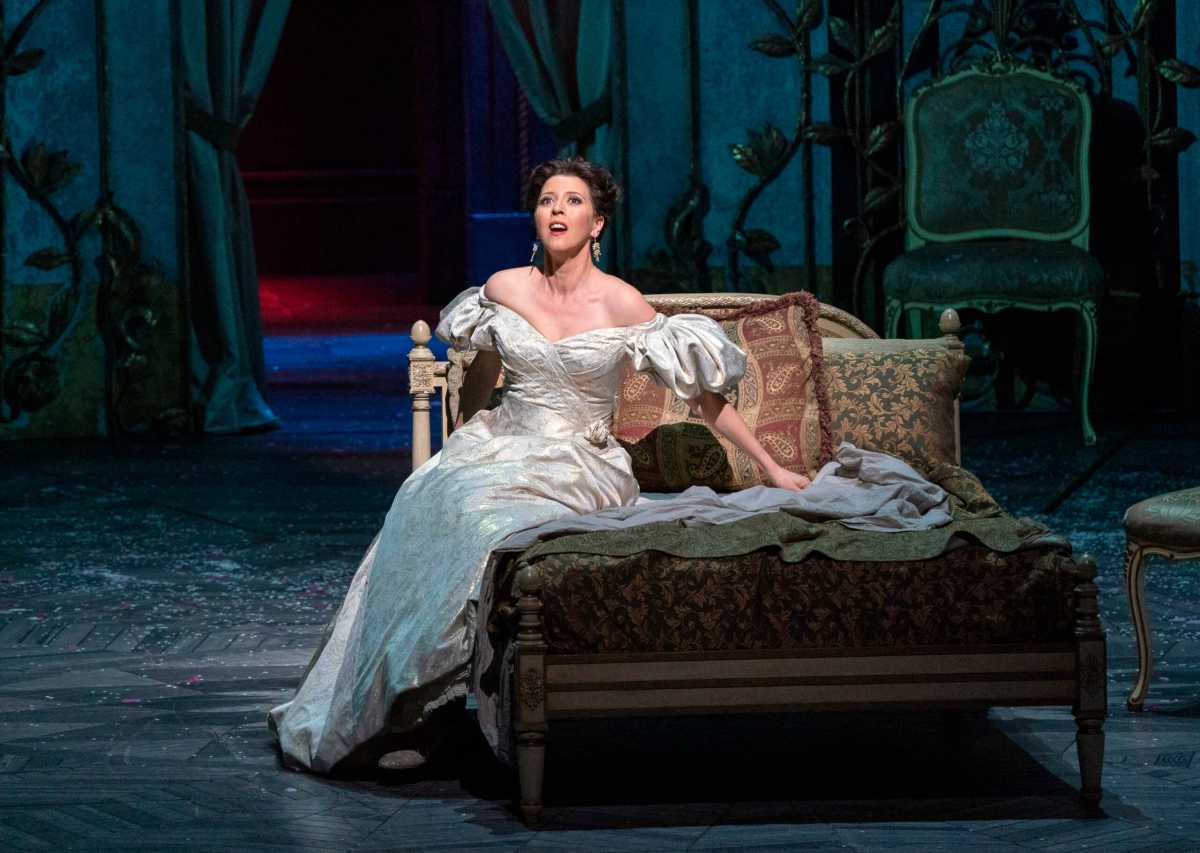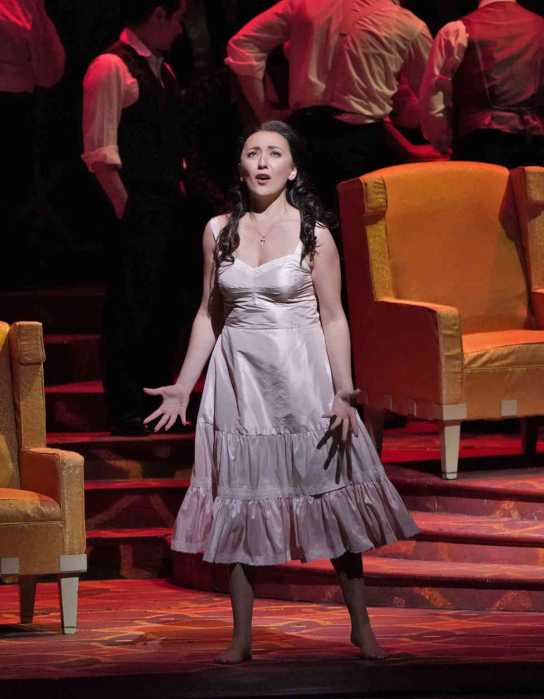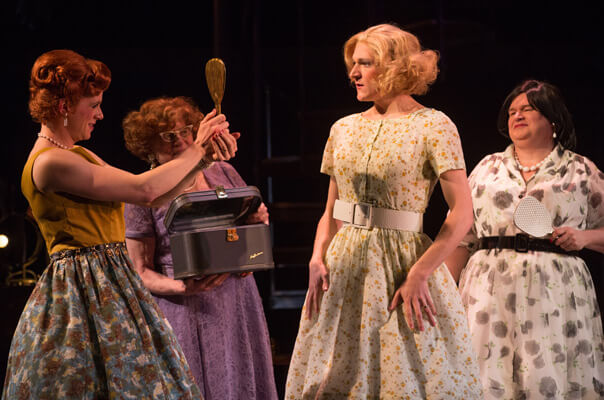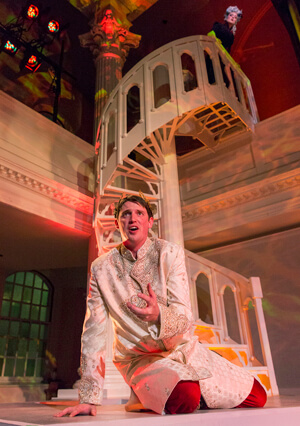In this strange time of anxiety and isolation shadowed by fear of illness and death, opera helps us release and rise above our dark emotions through the power of music. We can no longer experience music communally in a group setting but listen alone in the intimacy of our homes. Love and death are the core themes of opera. Giuseppe Verdi masterfully dramatized stories of vibrant souls facing death but exulting in life.
Violetta Valéry, the tubercular protagonist of Verdi’s “La Traviata,” knows she is doomed from the first scene of the opera. So she hurls herself into pleasure and by the end of the first act real romantic love. The second run of this year’s revival of the Michael Mayer “La Traviata” production featuring Lisette Oropesa in her local debut as Violetta, proved to be arguably the best revival of the Metropolitan Opera’s sadly curtailed season.
For years Oropesa, a graduate of the Met’s Lindemann program, was typecast as a soubrette sidekick or “ina” light soprano. After several seasons away from the Met establishing herself as a star coloratura in major European houses, Oropesa has returned to the Metropolitan Opera in prima donna roles. I found her Massenet Manon last Fall somewhat equivocal: Her light, heady tone is perfect for French opera but this was a role debut and her slender tone was sometimes pushed too hard in the vast reaches of the Met. In a smaller European house, Oropesa’s Manon would have been a jewel.
Violetta in “Traviata,” however, is a role Oropesa has done throughout the world from Philadelphia to Verona and Greece.
On her opening night on February 26, Oropesa unveiled a finely-honed “Traviata” interpretation full of intelligent musical and dramatic detail. Vocally, Oropesa is a throwback to light coloratura Violettas like Amelita Galli-Curci or, later, Beverly Sills. This is a tradition that has all but disappeared in recent decades — we usually hear a fuller dark lyric or spinto soprano Violetta who often struggles with the first act coloratura. Even coloratura sopranos like Natalie Dessay and Diana Damrau, stars of two of the HD transmission “Traviata” matinees the Met has broadcast, struggled with “Sempre Libera,” barely skirting disaster. So it was a pleasure to hear the runs, trills, and grace notes in Act I attacked with polish, delicacy, and command right up to a secure E-flat to end the act.
In Act I, Oropesa’s sound was bright and a little shallow suggesting a glittering creature who avoided deeper feelings. I worried that our new Violetta would lack tonal resources and variety of color for the more dramatic second and third acts. I should not have worried. Her quick vibrato gives her tone emotional urgency. Oropesa has the ability to float delicate pianissimos of ethereal beauty. In Act III, “Addio del Passato” was colored with a mournful slightly veiled timbre. This was a subtle and finely detailed reading with insightful projection of text. Her psychologically acute character interpretation sustained by iridescent tones of filigree silver. Oropesa is definitely a big girl now.
Both male roles were interpreted by native Italians: Sardinian-born tenor Piero Pretti replaced Vittorio Grigolo as Alfredo and Luca Salsi sang his father Germont. Pretti has a trim waistline, native diction, conventional but believable acting, and stylish musicianship. What he lacks is a first-class quality voice (which Grigolo despite his many vagaries and eccentricities does have). Even with a well-produced but grainy “B” voice, Pretti nevertheless made a committed romantic hero of Alfredo. Salsi’s burly, dark baritone sounded more forceful than suave in Germont’s long cantilena phrases but this is an “A” voice with command of legato and real Verdian weight.
Shout out to Barton Cowperthwaite subbing for Garen Scribner as principal male dancer in the Act II “Thriller zombie ballet”: his bravura performance kept him and everyone else from looking ridiculous.
Holding it all together with a combination of elegant polish and forward-moving energy was Bertrand de Billy whose conducting was the epitome of class. This sounded like a festival performance not a repertory revival. Mayer’s production is still a gaudy eyesore and conceits like dragging a mute Germont daughter onstage into the home of a courtesan are still boneheaded. But the classy and dramatically astute trio of protagonists made the production recede into the background — they had class and dramatic truth and Mayer’s tacky staging becomes superfluous bric-a-brac.
Brava diva and bravo Metropolitan Opera!
The Shed, in a late autumn production, presented the US debut of the ultra-hip Greek-born, Perm-based conductor Teodor Currentzis leading his musicAeterna ensemble in a performance of Verdi’s “Requiem.” This was the final stop of an international tour of Europe and Asia that was greeted with acclaim. The Shed is the trendy new destination down by the Hudson Yards replete with bars, cafés, and bookshops where the hip and young gather to see and be seen without bothering to read a book or attend a performance. The McCourt Theater is a large open airport hangar-like space with rows of plastic seats on risers on three sides. It all looks like a uber-modern university lecture hall that is dark and utilitarian looking — lots of black and concrete. I suspect there was some sonic enhancement going on but the acoustics are tolerable, but not warm. Also adding to the cultural prestige was the local premiere of a “Requiem” film screened along with the live concert by the late avant-garde filmmaker Jonas Mekas, his last work before his death in January 2019 at age 96.
For many the Mekas film was as much an event as the “Requiem” performance. Projected on two large screens behind the musicians, it proved to be a frustrating and irrelevant distraction. Commissioned as Mekas was starting to enter his final illness and largely assembled by his longtime editor, his “Requiem” resembled a random collection of home movies. Images of rivers, flowers, trees interspersed with grainy press clippings of political assassinations and war crimes had little relevance to the text or music of Verdi’s “Requiem.” It was just visual flak behind the performers and could easily be ignored.
Not to be ignored were the superb musicianship and dramatic intensity of Currentzis’ interpretation and the passionate playing of musicAeterna. Verdi’s “Requiem” is often described as an opera in religious disguise. Currentzis very much played it as a religious work, taking it out of the opera house and putting it back into the church with a more inward focus. His tempos had an intense inevitability even when they diverged from tradition — there was none of the arbitrary musical choices that mar Currentzis’ recent Mozart opera recordings on the Sony Classical label.
Theatricality was not absent, the musicAeterna ensemble were dressed in black cassocks like Russian monks with the split string section standing on both sides of the podium throughout. The lighting onstage was generally dark and shadowy (largely to allow the Mekas film to be seen) but various lighting effects were introduced throughout to spotlight soloists and change the atmosphere. The tall and striking Currentzis is a charismatic figure with curly black hair, long legs in black leggings, long arms and fingers conducting without a baton. The orchestra followed every twitch of his finger with total concentration and faultless ensemble playing.
The vocal quartet had decided strengths. The ladies were more uneven: Zarina Abaeva, a Russian soprano new to me, sometimes lost intonation and control in forte climaxes. However, she faultlessly sustained floating piano and pianissimo effects, coming into her own on the “Libera Me” finale. Abaeva has a full creamy tone with a soft finish. French mezzo-soprano Clémentine Margaine has a plummy mezzo with a rich lower register but the higher phrases came out constrained and not always up to pitch.
Tenor René Barbera sang possibly the best rendition of the tenor solo part I have heard live — his lyrical voice is virile, rich yet sweet with stunning high notes and dynamic control. He is no longer just a Rossini tenor but ready to take on a wider repertoire. Bass Evgeny Stavinsky, also previously unknown to me, revealed a mellifluous basso cantante used with smooth legato and acute musicianship (he is also a conductor).
Verdi’s “Requiem” is the universal plaint of humanity facing death and imploring God for redemption and peace. It is about loss but also hope in the face of inevitable mortality. Thanks to Currentzis and his musicAeterna ensemble and most of all to the genius of Verdi, a deeply moving emotional experience was to be found despite all the artsy visual distractions. Music is the main force and triumphs over trivialities.



































